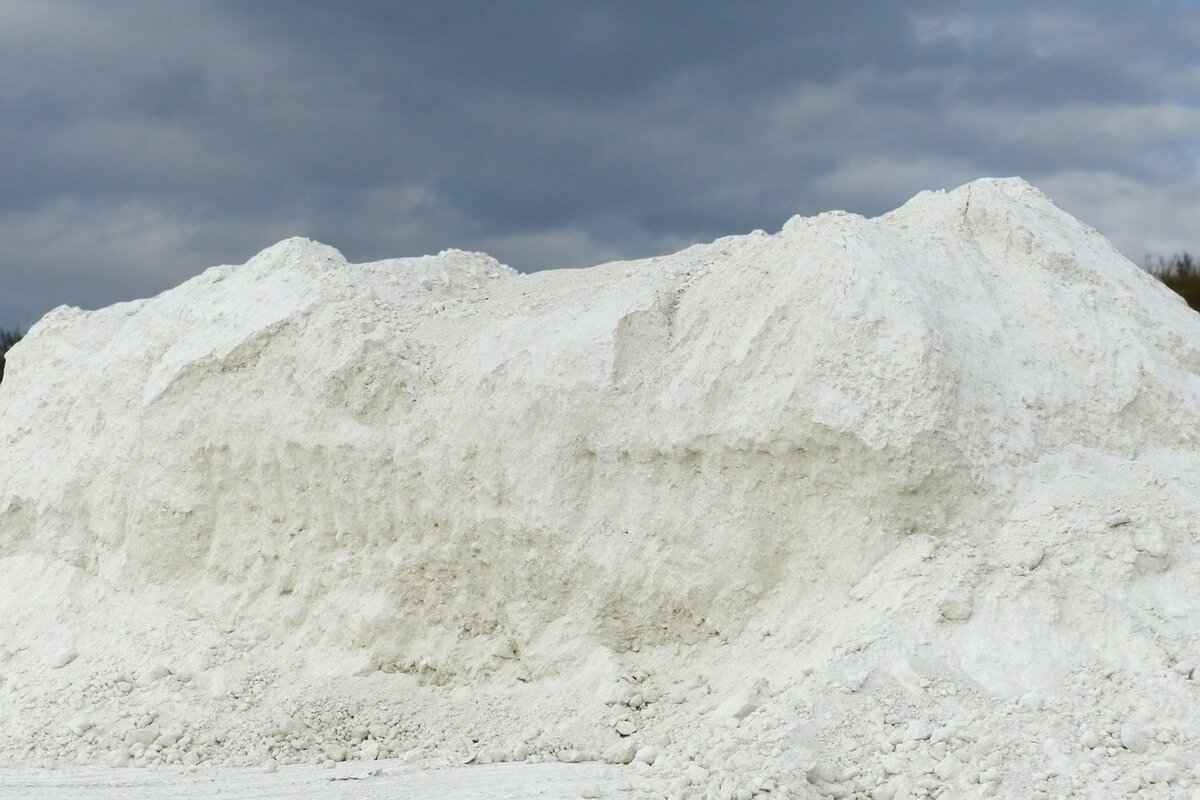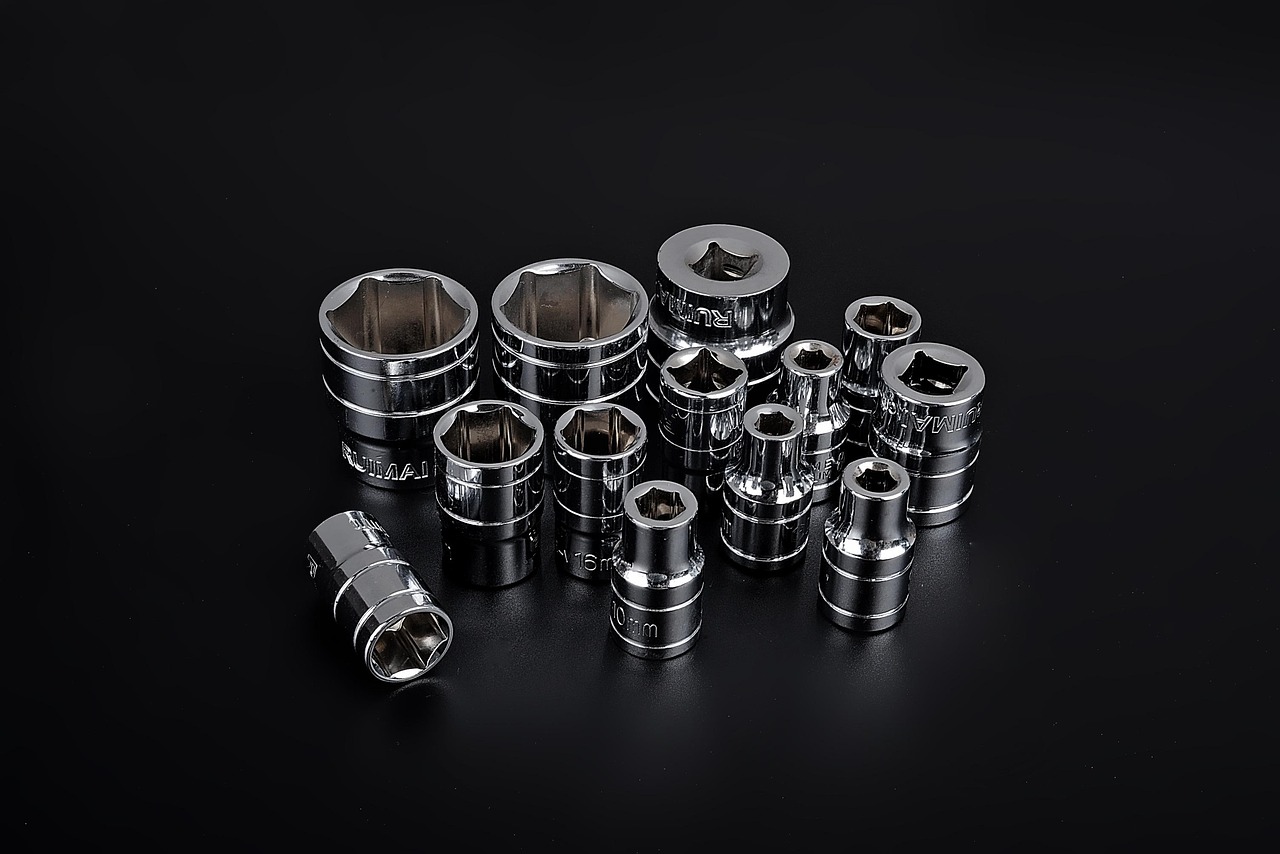This article provides effective methods and practical tips for removing oil stains from asphalt driveways, ensuring a clean and well-maintained appearance for your property. Oil stains can be a common nuisance for homeowners, detracting from the overall aesthetic of your driveway and potentially causing long-term damage if not addressed promptly. Below, we will explore various methods and tips for effectively removing these stains.
Oil stains on asphalt driveways can be unsightly and damaging. These stains typically form when oil leaks from vehicles or equipment, seeping into the porous surface of the asphalt. The longer the oil remains on the surface, the more difficult it becomes to remove. Understanding how these stains form is crucial in choosing the right removal method to restore your driveway’s appearance.
Identifying the common sources of oil stains can help homeowners prevent future occurrences. Typical causes include:
- Vehicle leaks, such as engine oil, transmission fluid, or power steering fluid.
- Improper disposal of oil products, which can lead to spills.
- Oil changes performed in driveways without protective measures.
By recognizing these sources, homeowners can take proactive steps to minimize the risk of oil stains.
Removing oil stains promptly can prevent permanent damage to your asphalt driveway. If left untreated, oil can break down the asphalt, leading to cracks and further deterioration. Immediate action not only helps maintain the driveway’s appearance but also saves homeowners from costly repairs in the future. The benefits of timely removal include:
- Preserving the structural integrity of the asphalt.
- Enhancing the overall aesthetic of your property.
- Preventing environmental hazards associated with oil spills.
Homeowners can employ several DIY techniques to effectively remove oil stains from asphalt. Here are some popular methods:
Baking soda and vinegar are effective natural cleaners. To create a potent stain remover, sprinkle baking soda over the oil stain, then spray vinegar on top. Allow the mixture to fizz and sit for about 30 minutes before scrubbing with a stiff brush and rinsing with water.
Cat litter can absorb oil effectively. To use this method, cover the oil stain with cat litter and let it sit for several hours or overnight. Afterward, sweep up the litter and wash the area with soap and water to remove any residue.
For those seeking professional results, commercial oil stain removers are available. These products are specifically designed to break down and lift oil stains from asphalt. Popular products include:
- Oil Eater Cleaner Degreaser
- Simple Green Concrete and Driveway Cleaner
- Krud Kutter Oil Stain Remover
When selecting a product, look for one that is biodegradable and safe for asphalt surfaces.
Selecting the right commercial product is essential for effective stain removal. Consider factors such as:
- The type of oil stain (fresh vs. old).
- The size of the stained area.
- Environmental safety and compatibility with asphalt.
Proper application techniques can enhance the effectiveness of commercial products. Always follow the manufacturer’s instructions, and consider the following tips:
- Apply the product during cooler parts of the day to prevent evaporation.
- Use a stiff brush or broom for scrubbing.
- Rinse thoroughly after application to avoid residue buildup.
Taking preventive measures can help maintain the appearance of your asphalt driveway. Strategies include:
Regular maintenance can prolong the life of your driveway. Essential practices include:
- Routine cleaning to remove debris and spills.
- Applying a sealant every few years to protect the asphalt.
Promptly addressing vehicle leaks can prevent oil stains. Regular vehicle inspections and maintenance are crucial to avoid driveway damage. Consider using drip pans or mats under vehicles that are prone to leaking.
In some cases, oil stains may require professional intervention. Signs that indicate it’s time to call in experts include:
Severe oil stains may not respond to DIY methods. If stains persist after multiple attempts at cleaning, it may be necessary to consult a professional.
Understanding the costs associated with professional stain removal can help homeowners make informed decisions. Prices can vary based on the severity of the stain and the size of the area needing treatment. Typically, homeowners can expect to pay between $100 to $300 for professional cleaning services.

Understanding Oil Stains on Asphalt
Oil stains on asphalt driveways are not only unsightly but can also lead to long-term damage if not addressed promptly. These stains typically form when oil or other petroleum-based products leak from vehicles, creating dark patches that can mar the appearance of your driveway. Understanding how these stains develop is essential for homeowners looking to maintain a clean and appealing exterior.
Asphalt is a porous material, which means it can absorb liquids, including oil. When oil spills occur, it seeps into the tiny pores of the asphalt, making it challenging to remove without proper techniques. The longer an oil stain sits, the deeper it penetrates, increasing the likelihood of permanent discoloration. Additionally, environmental factors such as heat and sunlight can exacerbate the situation, causing the oil to break down and bond more tightly with the asphalt.
To effectively combat oil stains, it is crucial to recognize the common sources that lead to these issues. Vehicle leaks are the primary culprits, often stemming from worn-out gaskets, damaged oil pans, or faulty seals. Regular vehicle maintenance, including checking for leaks, can significantly reduce the risk of oil staining your driveway. Additionally, improper disposal of oil products, such as pouring used motor oil onto the ground, can contribute to the problem.
Another important consideration is the impact of weather on oil stains. Rain can wash away some surface oil, but it can also spread the stain further, making it more challenging to clean. Therefore, homeowners should act quickly when they notice an oil stain, as timely intervention can prevent further damage.
In summary, understanding the formation of oil stains on asphalt driveways is critical for effective maintenance. By recognizing the sources of these stains and acting promptly, homeowners can preserve the integrity and appearance of their driveways. Regular inspections and maintenance of vehicles, combined with appropriate cleaning methods, can help keep your asphalt driveway looking its best.

Common Causes of Oil Stains
Understanding the is essential for homeowners who want to maintain their asphalt driveways. Oil stains not only detract from the aesthetic appeal of your property but can also lead to long-term damage if not addressed promptly. By identifying the sources of these stains, homeowners can take proactive measures to prevent future occurrences.
Oil stains can originate from various sources, each contributing to the deterioration of your driveway’s surface. Below are some of the most common causes:
- Vehicle Leaks: One of the primary culprits behind oil stains is leaking fluids from vehicles. This can include motor oil, transmission fluid, or power steering fluid. Regularly checking your vehicle for leaks and addressing any issues can significantly reduce the chances of oil stains forming on your driveway.
- Improper Disposal of Oil Products: Many homeowners may inadvertently contribute to oil stains by improperly disposing of used oil or oil-based products. Pouring these substances onto the ground or down the drain can lead to stains not only on driveways but also in the surrounding environment. It’s crucial to follow local regulations for the disposal of such materials.
- Oil Changes and Maintenance: Routine maintenance, such as oil changes, can also be a source of stains. If oil spills occur during these processes and are not cleaned up immediately, they can seep into the asphalt, leading to persistent stains. Always ensure that any spills are cleaned promptly and thoroughly.
- Equipment Leaks: Oil stains can also come from equipment used around the home, such as lawn mowers, generators, or any machinery that uses oil. Regular maintenance of these machines can help prevent leaks and subsequent stains on your driveway.
- Weathering and Wear: Over time, asphalt driveways can wear down due to exposure to the elements, making them more susceptible to oil penetration. Regular sealing and maintenance can help protect the surface and reduce the likelihood of stains.
By being aware of these common sources, homeowners can take proactive steps to protect their driveways. Regular inspections of vehicles and machinery, as well as proper disposal of oil products, can significantly minimize the risk of stains. Additionally, implementing routine maintenance practices can enhance the longevity of your driveway while keeping it looking its best.
In summary, understanding the is a vital part of driveway maintenance. By addressing vehicle leaks, ensuring proper disposal of oil products, and maintaining equipment, homeowners can effectively prevent future oil stains and preserve the integrity of their asphalt driveways.

Importance of Timely Oil Stain Removal
When it comes to maintaining the appearance and integrity of your asphalt driveway, timely oil stain removal plays a critical role. Oil stains can be more than just an eyesore; they can lead to significant long-term damage if not addressed promptly. This section delves into the reasons why immediate action is essential and the potential consequences of neglecting these stains.
One of the primary benefits of removing oil stains quickly is the prevention of permanent damage. Asphalt is a porous material that can absorb oil, leading to cracks and deterioration over time. When oil seeps into the asphalt, it can weaken the structure, making it more susceptible to weather-related damage and increasing the likelihood of costly repairs. By acting swiftly, homeowners can maintain the driveway’s integrity and extend its lifespan.
Another important aspect to consider is the visual appeal of your property. An oil-stained driveway can detract from the overall aesthetic of your home, making it look neglected. This can be particularly concerning if you plan to sell your property, as potential buyers may be deterred by visible stains. A clean, well-maintained driveway enhances curb appeal and creates a positive first impression.
Moreover, ignoring oil stains can lead to a more challenging removal process in the future. Over time, oil can harden and bond with the asphalt, making it significantly more difficult to remove. This may require the use of harsher chemicals or professional cleaning services, both of which can be more expensive than simple DIY methods. By addressing stains promptly, homeowners can save time and money in the long run.
Additionally, the environmental impact of oil spills should not be overlooked. Oil can seep into the ground and contaminate local water supplies, posing a risk to wildlife and plant life. By removing oil stains quickly, homeowners contribute to a healthier environment and minimize their ecological footprint.
In summary, the importance of timely oil stain removal cannot be overstated. From preserving the structural integrity of your asphalt driveway to enhancing your property’s visual appeal and protecting the environment, prompt action is essential. Homeowners should remain vigilant and proactive in addressing oil stains, ensuring their driveways remain in excellent condition for years to come.

DIY Methods for Oil Stain Removal
Homeowners can effectively tackle oil stains on their asphalt driveways using a variety of DIY techniques. These methods leverage common household products and tools, making them both accessible and cost-effective. Below, we explore several effective strategies to help restore your driveway’s appearance without the need for professional services.
- Using Baking Soda and Vinegar: This dynamic duo is well-known for its cleaning power. To create a potent stain remover, sprinkle a generous amount of baking soda over the oil stain. Next, pour vinegar over the baking soda. The chemical reaction will help lift the stain from the asphalt. Allow the mixture to sit for at least 30 minutes before scrubbing the area with a stiff brush. Rinse with water afterward to reveal a cleaner surface.
- Employing Cat Litter for Absorption: Cat litter is not just for pets; it can also be a fantastic absorbent for oil. Simply cover the stain with a thick layer of cat litter and let it sit for several hours or overnight. The litter will absorb the oil, making it easier to sweep away the stain. For best results, follow up with a mild detergent and water to clean the area thoroughly.
- Using Dish Soap and Hot Water: Dish soap is designed to cut through grease, making it an excellent choice for oil stains. Mix a few drops of dish soap with hot water and apply it to the stained area. Scrub with a stiff-bristled brush, then rinse with clean water. This method is particularly effective for fresh stains.
- Employing Cornstarch or Flour: For fresh oil stains, sprinkle cornstarch or flour directly onto the stain. These powders work to absorb the oil. Let it sit for at least 30 minutes before sweeping it away. Follow up with a cleaning solution for any remaining residue.
- Using Commercial Degreasers: While this may not be a traditional DIY method, many household degreasers can be effective against oil stains. Look for products that are safe for asphalt surfaces. Apply according to the manufacturer’s instructions, and ensure thorough rinsing afterward to avoid any residue.
Incorporating these DIY methods can significantly enhance the appearance of your asphalt driveway, extending its lifespan and maintaining your property’s curb appeal. Regular maintenance and prompt action against stains will help prevent more significant issues down the road.
Using Baking Soda and Vinegar
Baking soda and vinegar are not just kitchen staples; they are also effective natural cleaners that can tackle tough stains, including oil stains on asphalt driveways. This combination is not only safe for the environment but also economical, making it a popular choice for homeowners looking to maintain their driveways without resorting to harsh chemicals.
To create a potent stain remover for your asphalt driveway, follow these simple steps:
- Gather Your Materials: You will need baking soda, white vinegar, a scrub brush, and a bucket of warm water.
- Prepare the Stain Area: Start by clearing the area of any debris or loose dirt. This helps the cleaning solution penetrate the stain effectively.
- Apply Baking Soda: Generously sprinkle baking soda over the oil stain. The baking soda acts as an absorbent, drawing out the oil from the asphalt.
- Add Vinegar: Slowly pour white vinegar over the baking soda. You will notice a fizzing reaction as the two ingredients combine. This reaction helps to lift the stain from the surface.
- Let it Sit: Allow the mixture to sit for at least 30 minutes. This gives the baking soda and vinegar time to work on breaking down the oil.
- Scrub the Stain: Using a scrub brush, scrub the area in a circular motion. This action helps to loosen the stain from the asphalt.
- Rinse with Water: After scrubbing, rinse the area with warm water to wash away the baking soda and vinegar mixture along with the loosened oil.
- Repeat if Necessary: For stubborn stains, you may need to repeat the process to achieve the desired results.
This method is not only effective but also environmentally friendly, making it a great option for those who are conscious about their ecological footprint. Additionally, baking soda and vinegar are widely available and inexpensive, making this a practical solution for homeowners.
By regularly using this natural cleaning method, you can maintain the appearance of your asphalt driveway and prevent oil stains from becoming a permanent blemish. Remember, the sooner you address the stains, the easier they will be to remove!
Employing Cat Litter for Absorption
When faced with the challenge of removing oil stains from your asphalt driveway, one of the most effective and economical solutions is cat litter. This common household item is not only useful for pet owners but also serves as a powerful absorbent for oil spills. In this section, we will explore the steps to effectively utilize cat litter for oil stain removal, including application techniques and cleanup procedures.
Why Cat Litter Works
Cat litter is primarily made from clay or other absorbent materials that can soak up liquids, making it an ideal candidate for tackling oil stains. The porous nature of the litter allows it to trap oil and prevent it from seeping deeper into the asphalt surface, thereby facilitating easier removal.
Steps to Use Cat Litter for Oil Stain Removal
- Assess the Stain: Before applying cat litter, evaluate the age and size of the oil stain. Fresh stains are easier to manage, so acting quickly is crucial.
- Cover the Stain: Generously sprinkle cat litter over the oil stain, ensuring complete coverage. The litter should be applied thickly to maximize absorption.
- Allow Time to Absorb: Let the cat litter sit on the stain for at least 24 hours. This duration allows the litter to soak up as much oil as possible.
- Brush Off the Litter: After the absorption period, use a broom or brush to sweep away the used cat litter. Be thorough to ensure all litter is removed from the surface.
- Clean the Area: For any remaining residue, wash the area with warm, soapy water. A stiff-bristled brush can help lift any stubborn stains.
- Rinse Thoroughly: Finally, rinse the area with clean water to remove any soap and remaining oil particles. Ensure the surface is dry before allowing vehicles back on the driveway.
Cleanup Procedures
Once the cat litter has been removed, it’s important to dispose of it properly. If the litter is saturated with oil, consider taking it to a hazardous waste facility, as it may not be suitable for regular trash disposal. This step helps prevent environmental contamination.
Additional Tips for Effectiveness
- For older or more stubborn oil stains, consider repeating the process with fresh cat litter.
- Using a combination of cat litter and a commercial degreaser can enhance the effectiveness of the stain removal process.
- Always wear gloves when handling oil-stained materials to protect your skin.
By following these steps, you can effectively utilize cat litter to manage and remove oil stains from your asphalt driveway, ensuring it remains in good condition and visually appealing.

Commercial Products for Oil Stain Removal
When it comes to removing stubborn oil stains from asphalt driveways, commercial oil stain removers can be a game-changer. These products are specifically formulated to tackle tough stains that DIY methods may struggle to eliminate. In this section, we will explore some of the most popular commercial products available, their effectiveness, and essential tips for proper use.
- Popular Commercial Oil Stain Removers:
- Oil Eater: A biodegradable cleaner, Oil Eater is known for its powerful formula that breaks down oil and grease. It is safe for use on asphalt and is effective in both residential and commercial applications.
- Simple Green: This versatile cleaner is not only effective on oil stains but also environmentally friendly. It can be diluted for lighter stains or used full-strength for tougher jobs.
- Krud Kutter: Designed to tackle the toughest stains, Krud Kutter is a favorite among homeowners and professionals alike. Its fast-acting formula penetrates deep into the stain, making removal easier.
- Clean+Green: This product is a non-toxic, eco-friendly option that effectively removes oil stains without harsh chemicals. It’s ideal for those concerned about environmental impact.
Effectiveness of Commercial Products
Many homeowners find that commercial oil stain removers outperform DIY methods, especially for older or more stubborn stains. These products often contain powerful surfactants that penetrate and lift oil from the asphalt surface. When selecting a product, it’s important to read reviews and consider the specific type of stain you are dealing with. Some products are designed for specific applications, such as heavy machinery or automotive oil, while others are more general-purpose.
Tips for Proper Use
To achieve the best results with commercial oil stain removers, follow these key tips:
- Read Instructions: Always follow the manufacturer’s instructions for application and safety. This ensures you use the product correctly and safely.
- Test a Small Area: Before applying the product to the entire stain, test it on a small, inconspicuous area of your driveway to ensure it does not damage the asphalt.
- Apply Generously: For best results, apply a generous amount of the cleaner directly to the stain. Allow it to sit for the recommended time to break down the oil.
- Scrub if Necessary: For tough stains, a scrub brush can help agitate the product and lift the stain more effectively.
- Rinse Thoroughly: After the stain has lifted, rinse the area thoroughly with water to remove any residue from the cleaner.
In conclusion, commercial oil stain removers offer a reliable solution for homeowners looking to restore their asphalt driveways. By understanding the available products and following proper application techniques, you can effectively eliminate unsightly oil stains and maintain the appearance of your property.
Choosing the Right Product
When it comes to removing oil stains from your asphalt driveway, selecting the appropriate commercial product is crucial for achieving effective results. The market is flooded with various options, making it essential to know what to look for to ensure you choose a product that meets your needs.
- Type of Stain Remover: There are two primary types of oil stain removers: solvent-based and biodegradable products. Solvent-based options are typically more potent and can tackle tough stains but may contain harsh chemicals. On the other hand, biodegradable products are environmentally friendly and safer for use around pets and plants but may require more time and effort to work effectively.
- Effectiveness: Look for products that are specifically designed for oil stain removal. Reading customer reviews and checking for before-and-after photos can provide insight into the product’s effectiveness. Additionally, some products come with a satisfaction guarantee, which can offer peace of mind.
- Ease of Use: Consider how easy the product is to apply. Some oil stain removers come in spray bottles, while others require mixing or application with a brush. Choose a product that fits your comfort level and the size of the stain.
- Drying Time: Different products have varying drying times. If you need a quick solution, look for fast-acting formulas that promise results within a few hours. However, be prepared for longer drying times with more potent formulations.
- Safety Precautions: Always check the safety information on the product label. Look for products that are low in volatile organic compounds (VOCs) and have minimal health risks. Using gloves and masks during application is advisable to protect yourself from any harmful chemicals.
- Price: While it can be tempting to go for the cheapest option, consider the long-term value of the product. Sometimes, spending a little more on a high-quality stain remover can save you time and effort in the long run.
In addition to these factors, consider the size of the area you need to treat. For larger stains or multiple spots, purchasing a larger container may be more cost-effective.
To summarize, selecting the right commercial oil stain remover involves evaluating the type of product, its effectiveness, ease of use, drying time, safety precautions, and cost. By taking the time to research and choose wisely, you can ensure that your asphalt driveway remains clean and well-maintained, enhancing the overall appearance of your property. Remember that proper application techniques, as discussed in subsequent sections, will further maximize the effectiveness of your chosen product.
Application Techniques for Best Results
When it comes to removing oil stains from your asphalt driveway, application techniques play a crucial role in achieving the best results. Properly applying commercial products not only enhances their effectiveness but also ensures that the stain is removed without damaging the surface of your driveway. Below, we outline the best practices for applying these cleaners, ensuring you get the most out of your chosen product.
Before applying any cleaner, it is essential to prepare the surface of your driveway. Start by clearing the area of any debris, such as leaves or dirt. Use a broom or a leaf blower to ensure the surface is clean. Next, wet the stained area with water, as this can help the cleaner penetrate the oil stain more effectively. This initial preparation is vital for achieving optimal results.
Each commercial oil stain remover comes with specific instructions for use. It is important to read and follow these guidelines carefully. This includes details on how much product to apply, the recommended dwell time (the amount of time the product should sit on the stain), and any necessary safety precautions. Adhering to these instructions can significantly improve the chances of complete stain removal.
When applying the cleaner, consider the following techniques to maximize effectiveness:
- Use a Sprayer or Applicator: For even distribution, use a sprayer or a sponge applicator. This ensures that the product reaches all areas of the stain.
- Apply Generously: Don’t skimp on the product. A generous application will allow the cleaner to penetrate deeper into the asphalt and break down the oil.
- Agitate the Cleaner: For stubborn stains, gently scrub the area with a stiff-bristled brush after applying the cleaner. This agitation helps lift the oil from the surface.
Allow the product to dwell for the recommended time. This waiting period is crucial as it gives the cleaner enough time to break down the oil. Avoid rushing this step, as doing so can lead to incomplete stain removal.
After the dwell time has elapsed, thoroughly rinse the area with water. Use a pressure washer if available, as this can help remove any residual cleaner along with the loosened oil. If you notice any remaining stains, you may need to repeat the application process.
While using commercial cleaners, always wear appropriate protective gear such as gloves and goggles. Additionally, ensure that the area is well-ventilated. Following these safety measures will protect you from any harmful chemicals present in the products.
By implementing these application techniques, you can significantly enhance the effectiveness of commercial oil stain removers, ensuring your asphalt driveway remains clean and well-maintained.

Preventive Measures to Avoid Future Stains
Maintaining the pristine appearance of your asphalt driveway is essential for enhancing your property’s curb appeal. One of the most effective ways to achieve this is by implementing preventive measures that minimize the risk of future oil stains. Below are some strategies that can help you protect your driveway from unsightly blemishes.
- Regular Cleaning Routines: Establishing a routine for cleaning your driveway can significantly reduce the buildup of dirt and oil. Use a broom or a leaf blower to remove debris, followed by a wash with a mild detergent and water. This practice not only keeps your driveway looking good but also helps in spotting any potential stains early.
- Sealcoating: Applying a sealant to your asphalt driveway every few years can act as a protective barrier against oil and other stains. Sealcoating fills small cracks and prevents water and oil from penetrating the asphalt, thereby extending its lifespan and maintaining its appearance.
- Promptly Addressing Vehicle Leaks: Regularly inspect your vehicles for leaks and address them immediately. A small oil leak can quickly turn into a large stain if left unattended. Consider using a drip pan or absorbent mats under vehicles parked in the driveway to catch any leaks before they reach the asphalt.
- Proper Disposal of Oil Products: Be mindful of how you dispose of oil and other automotive fluids. Improper disposal can lead to spills that may stain your driveway. Always follow local guidelines for disposing of hazardous materials.
- Parking Smart: Encourage family and guests to park in designated areas and avoid overhanging tires on the edges of the driveway where oil stains are more likely to occur. Using mats or protective covers can also help prevent direct contact between the tires and asphalt.
Implementing these preventive measures not only helps in maintaining the aesthetic appeal of your driveway but also contributes to its longevity. By being proactive, you can save time and money on future cleaning and repair efforts, ensuring your asphalt driveway remains in excellent condition for years to come.
Regular Maintenance Practices
are essential for extending the lifespan of your asphalt driveway. By implementing a consistent maintenance routine, homeowners can keep their driveways looking pristine and functional. This section will explore various maintenance practices, including cleaning routines and sealant applications, that can significantly enhance the durability and appearance of your driveway.
Regular cleaning is crucial in maintaining your driveway. Dirt, debris, and oil stains can accumulate over time, leading to deterioration. Here are some effective cleaning practices:
- Routine Sweeping: Use a broom or leaf blower to remove leaves, dirt, and debris. This simple step prevents buildup and helps maintain the surface.
- Power Washing: A power washer can effectively remove stubborn stains and grime. Aim to clean your driveway at least once a year, or more frequently if you notice significant dirt accumulation.
- Spot Cleaning: For oil stains or spills, address them immediately with appropriate cleaning agents, such as dish soap or commercial degreasers, to prevent permanent damage.
Applying a sealant is another vital aspect of driveway maintenance. Sealants protect the asphalt from the elements, UV rays, and oil spills. Here’s how to effectively apply sealant:
- Choose the Right Sealant: Select a high-quality asphalt sealant that suits your driveway’s needs. Look for products that offer UV protection and are designed for your climate.
- Preparation: Before applying the sealant, ensure the driveway is clean and dry. Fill any cracks or holes with a patching compound to create a smooth surface.
- Application: Use a squeegee or roller to apply the sealant evenly, working in small sections. Follow the manufacturer’s instructions for drying times and the number of coats required.
Conducting seasonal maintenance checks can help identify potential issues before they escalate. Here are some tips:
- Inspect for Cracks: Regularly check for cracks or damage. Early detection allows for timely repairs, preventing further deterioration.
- Clear Drainage Areas: Ensure that drainage areas are clear of debris to prevent water pooling, which can weaken the asphalt over time.
- Monitor Vehicle Leaks: Keep an eye on your vehicles for any leaks. Addressing these promptly can prevent oil stains from forming on your driveway.
In conclusion, are vital for prolonging the life of your asphalt driveway. By establishing a consistent cleaning routine, applying sealants, and conducting seasonal checks, homeowners can ensure their driveways remain in excellent condition. This not only enhances the aesthetic appeal of your property but also protects your investment in the long run.
Addressing Vehicle Leaks Promptly
Regular vehicle maintenance is crucial for any car owner, not only to ensure the longevity and performance of the vehicle but also to protect your property from potential damage. One of the most significant issues that can arise from neglecting vehicle maintenance is oil leaks. These leaks can lead to unsightly oil stains on your asphalt driveway, which can be difficult to remove and may even cause long-term damage.
- Understanding the Risks: Oil leaks can happen for various reasons, including worn-out gaskets, damaged oil pans, or faulty seals. When oil leaks onto your driveway, it can seep into the asphalt, leading to staining and degradation over time. If left unaddressed, these stains can become permanent, requiring costly repairs or resurfacing of your driveway.
- Regular Vehicle Inspections: Conducting routine inspections of your vehicle is essential to catch leaks early. Check for any signs of oil pooling under your car or spots on the ground where you park. If you notice any leaks, it’s crucial to address them immediately. Regular oil changes and maintenance checks can help prevent leaks from developing in the first place.
- Professional Maintenance: If you are not comfortable inspecting your vehicle or if you suspect a significant leak, it is advisable to seek professional help. Mechanics can conduct a thorough inspection and identify the source of the leak, ensuring that it is repaired correctly. This proactive approach not only protects your driveway but also enhances the overall performance and reliability of your vehicle.
- Using Absorbent Materials: If a leak occurs, using absorbent materials like cat litter or sawdust can help contain the oil before it seeps into the asphalt. Apply these materials to the spill immediately and allow them to absorb the oil. Once the oil is absorbed, clean the area thoroughly to prevent staining.
- Educating Yourself: Understanding the common causes of vehicle leaks can empower you as a car owner. Familiarize yourself with the signs of potential issues, such as unusual engine noises or warning lights on your dashboard. Early detection can save you time and money in the long run.
In summary, promptly addressing vehicle leaks is essential not only for the health of your car but also for maintaining the appearance and integrity of your asphalt driveway. Regular inspections and timely repairs can prevent oil stains, ensuring that your property remains in excellent condition. By being proactive and vigilant about vehicle maintenance, you can avoid the hassle and expense of dealing with oil stains and driveway repairs in the future.

When to Seek Professional Help
In the realm of maintaining your asphalt driveway, oil stains can be particularly troublesome. While many homeowners attempt to tackle these stains using DIY methods, there are instances where the damage may be too severe or persistent for home remedies to be effective. Recognizing when to call in professionals can save time, effort, and potentially prevent further damage to your driveway.
- Identifying Severe Stains
Severe oil stains are often characterized by their deep coloration and extensive spread. If you notice that the stain has penetrated the asphalt, causing a dark patch that resists cleaning efforts, it’s a clear sign that professional intervention may be necessary. Additionally, if the stain has been present for an extended period, it may have bonded with the asphalt, making it more challenging to remove. Professionals utilize specialized equipment and cleaning solutions that can effectively lift these stubborn stains without damaging the underlying material.
- Signs of Damage Beyond the Stain
In some cases, oil stains may indicate underlying issues with the driveway itself. Cracks, crumbling edges, or a soft surface can suggest that the asphalt is deteriorating. If you observe any of these signs alongside oil stains, it’s essential to consult with a professional. They can assess the overall condition of your driveway and recommend appropriate repairs or treatments to restore its integrity.
- Cost Considerations for Professional Services
Understanding the costs associated with professional oil stain removal can help homeowners make informed decisions. The price may vary based on factors such as the size of the stain, the severity of the damage, and the specific methods employed by the professionals. Typically, homeowners can expect to pay anywhere from $100 to $500 for comprehensive oil stain removal services. While this may seem like a significant investment, consider it a cost-effective solution to prevent further damage and prolong the lifespan of your driveway.
- Time Constraints and Convenience
Homeowners often lead busy lives, and dedicating time to effectively remove oil stains can be challenging. If you find yourself pressed for time or overwhelmed by the task, hiring a professional may be the best course of action. Professionals not only bring expertise but also efficiency, allowing you to focus on other priorities while ensuring your driveway receives the care it needs.
- Access to Specialized Equipment
One of the significant advantages of hiring professionals is their access to specialized equipment and cleaning solutions. These tools are often more effective than standard household products and can yield results that DIY methods simply cannot achieve. Professionals are trained to use these tools safely and effectively, ensuring that your driveway is treated without risk of damage.
In summary, while DIY methods can be effective for minor oil stains, recognizing the signs that indicate the need for professional help is crucial. Severe stains, signs of damage, cost considerations, time constraints, and access to specialized equipment all play a role in determining whether to seek expert assistance. By making an informed decision, you can maintain the appearance and integrity of your asphalt driveway for years to come.
Identifying Severe Stains
When it comes to maintaining the appearance of your asphalt driveway, identifying severe oil stains is crucial. Not all stains can be removed with simple home remedies; some require professional cleaning services. Understanding how to recognize these stubborn stains can save you time, effort, and potentially costly repairs.
What Makes a Stain Severe? Severe oil stains are typically characterized by their dark color, size, and the duration they have been on the surface. If a stain has been present for an extended period, it may have penetrated deeply into the asphalt, making it more challenging to remove. Additionally, stains that appear glossy or sticky often indicate that they are more than just surface-level issues.
Another factor to consider is the source of the stain. Stains caused by heavy machinery, old vehicles, or industrial oils tend to be more persistent than those from standard vehicle leaks. Recognizing the source can help in determining the appropriate removal strategy.
Signs That DIY Methods May Not Work If you have tried various DIY methods—such as baking soda, vinegar, or cat litter—and the stain remains, it may be time to consider professional help. A clear sign that your efforts are ineffective is if the stain does not lighten or diminish after several treatments. Additionally, if the stain spreads or darkens, this indicates that it is too severe for home remedies.
Professional Assessment If you’re uncertain whether a stain is severe, consulting a professional can provide clarity. Experts can assess the stain’s depth and composition, offering tailored solutions for removal. They often have access to specialized products and equipment that can effectively treat even the most stubborn stains.
Conclusion Identifying severe oil stains on your asphalt driveway is essential for maintaining its appearance and longevity. If you notice persistent, dark, or glossy stains that resist DIY cleaning methods, it may be time to seek professional assistance. By addressing these issues promptly, you can prevent further damage and keep your driveway looking its best.
Cost Considerations for Professional Services
When faced with stubborn oil stains on your asphalt driveway, many homeowners may wonder whether to tackle the problem themselves or hire a professional. Understanding the costs associated with professional stain removal can help homeowners make informed decisions. This section provides an overview of potential expenses involved in hiring experts.
- Initial Consultation Fees: Many professional cleaning services offer an initial consultation to assess the extent of the stains. This can range from $50 to $100, depending on the service provider and the location.
- Labor Costs: Labor charges typically account for a significant portion of the total cost. Most companies charge between $75 and $150 per hour. The total time required will depend on the severity of the stain and the methods used.
- Specialized Equipment: Professionals often use specialized equipment such as pressure washers or steam cleaners, which can add to the overall cost. Equipment rental or usage fees can range from $50 to $200.
- Cleaning Supplies: The cost of commercial-grade cleaning products can vary widely. Expect to pay between $20 and $100 for high-quality stain removers and degreasers that professionals utilize.
- Post-Cleaning Treatments: After removing the stain, some professionals may recommend sealing the driveway to prevent future stains. This treatment can add an additional $100 to $300 to your total expenses.
Factors Influencing Costs
Several factors can influence the overall cost of professional stain removal services. These include:
- Location: Costs may vary based on geographic location. Urban areas often have higher service fees compared to rural regions.
- Severity of Stains: The more severe the stain, the more time and resources will be required for effective removal, which can increase costs.
- Service Provider Reputation: Well-established companies with a strong reputation may charge premium rates due to their experience and customer satisfaction.
Long-Term Value
While the upfront costs of hiring professionals may seem high, it is essential to consider the long-term value. Professional services can prevent further damage to your driveway, which could require costly repairs or resurfacing if left untreated. By investing in expert stain removal, homeowners can save money in the long run by extending the life of their asphalt driveway and maintaining its aesthetic appeal.
In conclusion, understanding the costs associated with professional stain removal is crucial for homeowners. By weighing the benefits against the expenses, you can make an informed decision that best suits your needs and budget.
Frequently Asked Questions
- What causes oil stains on asphalt driveways?
Oil stains on asphalt driveways typically result from vehicle leaks, spills during oil changes, or improper disposal of oil products. These stains can be unsightly and, if left untreated, can cause long-term damage to your driveway.
- How can I remove oil stains using household items?
One effective method is to use a combination of baking soda and vinegar. Simply sprinkle baking soda over the stain, then pour vinegar on top. Let it fizz for a few minutes before scrubbing with a brush and rinsing with water.
- Are commercial oil stain removers effective?
Yes, commercial oil stain removers can be very effective, especially for tough stains. When choosing a product, look for ones specifically designed for asphalt and follow the application instructions for the best results.
- How can I prevent future oil stains on my driveway?
Regular maintenance is key! Ensure you inspect your vehicle for leaks, clean up spills immediately, and consider applying a sealant to your driveway to protect it from stains.
- When should I consider hiring a professional for oil stain removal?
If you notice severe or stubborn stains that don’t respond to DIY methods, it may be time to call in the experts. They have specialized tools and products that can effectively tackle tough stains.














